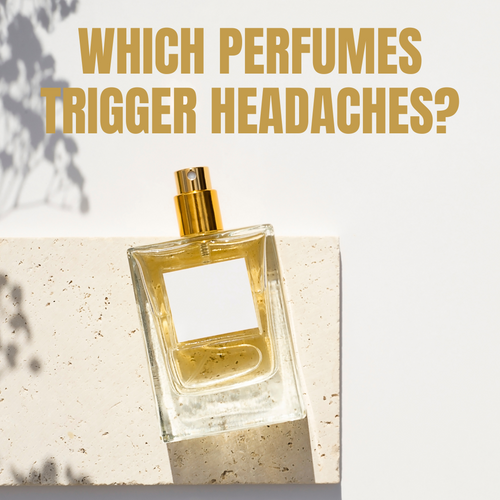Introduction
There’s something so magical about a fragrance, isn’t there? The way a simple spritz can transform your mood, evoke memories, and even influence the way others perceive you. A good perfume feels like an extension of yourself, something that tells your story without saying a word. But just like all good things, even the most beloved fragrance can fade. You might wonder—do perfumes expire? And if they do, how can you tell when your signature scent has lost its magic?
Understanding when and why perfumes expire isn’t just about protecting your favorite bottle of scent; it’s also about making sure you’re experiencing your perfume at its best. Let’s explore the lifespan of perfumes and how you can keep them smelling just as wonderful as the day you first fell in love with them.
Do Perfumes Expire?
The shelf life of perfume explained
Yes, perfumes do expire, but the good news is they usually last a long time. On average, most perfumes last between 3 to 5 years after they’re opened, depending on the quality and type of fragrance. Unopened perfumes, stored properly, can last even longer—sometimes up to 10 years. However, just like anything else, exposure to air, light, and heat can shorten the life of your perfume.
Why perfumes can go bad over time
Perfume is made up of a mix of essential oils, alcohol, and water. Over time, these ingredients can begin to degrade, which leads to a noticeable shift in scent. The fragrance molecules break down, and the balance between top, middle, and base notes can get thrown off. This means your fresh, vibrant perfume can turn dull, sour, or even unpleasant. Essentially, perfume "ages," just like a fine wine—except sometimes it doesn't age quite as gracefully.
What Affects the Longevity of Perfume?
The ingredients that influence expiration
Certain ingredients in perfume have a shorter shelf life than others. For example, citrus and floral notes are more delicate and tend to break down faster, while heavier base notes like musk, amber, and vanilla may last longer. Alcohol-based perfumes generally have a longer lifespan due to the preservative properties of alcohol, but even these can change over time.
How storage impacts perfume life
Storage is crucial when it comes to making your fragrance last. Heat, sunlight, and humidity are perfume's worst enemies. Ideally, perfumes should be kept in a cool, dry place away from direct sunlight, like in a drawer or cupboard. Storing your perfume in its original box can also help protect it from light exposure and keep the scent intact for longer.
How to Tell If Your Perfume Has Expired
Changes in scent
The most obvious sign that your perfume has expired is a change in scent. If the fragrance no longer smells as fresh, vibrant, or balanced, it could be a sign that it’s no longer at its best. The perfume may smell dull, sour, or even “off,” like it’s missing that initial burst of energy it once had.
Color changes in perfume
Another sign of expiration is a change in color. Perfumes, especially those with lighter, fresher notes, tend to darken as they age. If your perfume was once clear and now has a yellowish or brownish tint, it’s likely time to retire it. A darker color is often a sign that the ingredients have oxidized, altering the fragrance.
The effect on the fragrance's strength
When a perfume expires, the overall strength of its scent can diminish. You might notice that your fragrance doesn’t last as long on your skin, or that it fades faster than it used to. If you have to spritz multiple times throughout the day to catch a whiff, it’s time to reconsider whether it’s still in its prime.
How Long Do Different Types of Perfumes Last?
Eau de Parfum vs Eau de Toilette
Eau de Parfum (EDP) generally lasts longer than Eau de Toilette (EDT). This is because EDP has a higher concentration of fragrance oils, meaning it has a more stable and long-lasting scent. Eau de Toilette, being lighter, usually fades quicker. While EDP can last 4-5 years, EDT might start to lose its charm after 2-3 years.
The difference between niche and mass-market perfumes
Niche perfumes, often crafted with high-quality, complex ingredients, tend to last longer than mass-market fragrances, which might use synthetic elements that break down faster. Niche perfumes are also often stored in more protective packaging and might not be exposed to as many environmental stressors, giving them a longer shelf life.
Can You Still Use Expired Perfume?
Is it safe to wear perfume after it expires?
While it’s not harmful to wear expired perfume, it may not give you the same experience it once did. If the fragrance has gone sour or smells off, it’s best to stop using it. The altered scent might be unpleasant, and in some cases, expired perfume could even irritate the skin.
How to revive expired perfume for longer use
If you’ve noticed your perfume has started to lose its luster, try storing it properly (in a cool, dark place) and avoid shaking the bottle. Some people even add a few drops of essential oils that complement the fragrance to help revive it. But if it’s too far gone, it may be time to let go and treat yourself to a new bottle.
Tips to Make Your Perfume Last Longer
Proper storage methods
As mentioned earlier, the best way to prolong the life of your perfume is through proper storage. Keep your perfumes in their original packaging, out of the sun, and in a cool, dry environment. Avoid storing them in bathrooms, where humidity can speed up the aging process.
How to maximize the fragrance life of your perfume
Another tip for making your fragrance last longer is to apply it to pulse points—areas where the skin is warm, like your wrists, behind your ears, and the inside of your elbows. Warmth helps diffuse the scent. And remember: less is more. You don’t need to drown yourself in perfume; a few spritzes are usually enough to keep you smelling amazing all day.
Conclusion
Perfumes are a delicate art, blending time, ingredients, and chemistry into something that can elevate your mood, transport you to different places, or even remind you of someone special. But just as perfumes age with grace, they eventually lose their charm. While most fragrances can last for several years, proper care and storage are key to keeping your favorite scent intact. And when it’s time to say goodbye to a beloved bottle, don’t be sad—remember, a new fragrance awaits, ready to create new memories.
FAQs
-
How long does perfume last on the skin?
Perfume typically lasts 4-6 hours on the skin, depending on its concentration and your skin type. -
Can I use perfume that is past its expiration date?
While it’s safe to use expired perfume, the scent may not be as strong or pleasant as it once was. -
How can I store my perfume to make it last longer?
Store perfume in a cool, dry place away from sunlight and heat to maintain its quality. -
Can the scent of perfume change over time?
Yes, over time, the scent may become dull or sour as the ingredients degrade. -
What can I do if my perfume has gone bad?
If your perfume has gone bad, consider replacing it or trying to refresh it with complementary essential oils.



